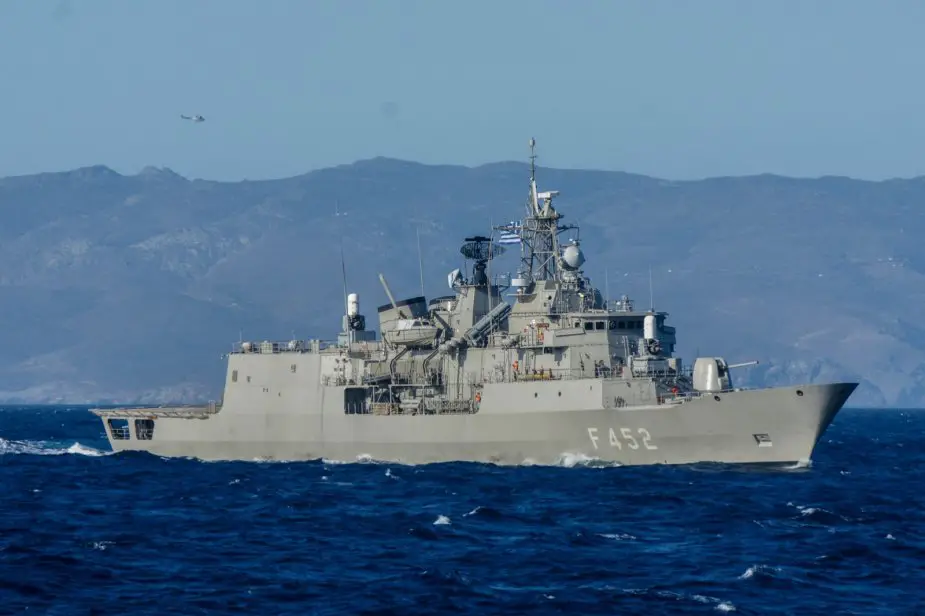Breaking news
Greek frigate Hydra shoots at a drone but misses another in Red Sea.
According to information published by the EU on April 25, 2024, the Greek Hydra class frigate Hydra engaged two unmanned aerial vehicles (UAVs) that posed a threat to a merchant vessel it was protecting in the Gulf of Aden. The frigate successfully shot down one of the UAVs, while the second UAV altered its course after the engagement.
Follow Navy Recognition on Google News at this link
 Hellenic Hydra class frigate Hydra. (Picture source: Greek MoD)
Hellenic Hydra class frigate Hydra. (Picture source: Greek MoD)
This incident not only highlights the operational proficiency of the Hellenic Navy but also sets the stage for examining how its engagement in diverse international exercises has prepared its units for such real-world threats.
The Hellenic Navy actively engages in international joint exercises as part of its operational approach, providing vital training that develops its capabilities across various naval domains. These exercises are essential for sustaining the navy’s tactical expertise and operational readiness, and for ensuring compatibility with NATO allies and other international partners.
Specific Joint Exercises and Their Objectives
NATO Maritime Group Exercises: The Hellenic Navy frequently takes part in NATO Response Force (NRF) operations, which cover a spectrum of naval exercises including air-defense, anti-submarine warfare, and surface warfare drills. Participation in these exercises demonstrates Greece's commitment to NATO and facilitates operational synergy with the navies of fellow member states.
Bilateral Drills: Greece also engages in bilateral drills with nations such as the United States, France, and Israel. For example, the annual "Ariadne" exercise focuses on anti-submarine warfare and live-fire drills, aimed at boosting cooperative capabilities among the forces in simulated combat scenarios.
Humanitarian and Disaster Relief Simulations: The navy’s training regimen includes drills aimed at humanitarian assistance and disaster relief (HADR), often conducted under the auspices of the EU or UN. These exercises prepare forces for quick deployment and effective response in disaster situations, concentrating on evacuation, medical support, and logistical aid.
Piraeus Naval Exercise (Poseidon): This large-scale naval exercise involves various units and is designed to simulate situations like maritime interdiction, search and rescue operations, and environmental protection, thereby improving the navy's readiness to defend maritime borders and address potential threats.
























